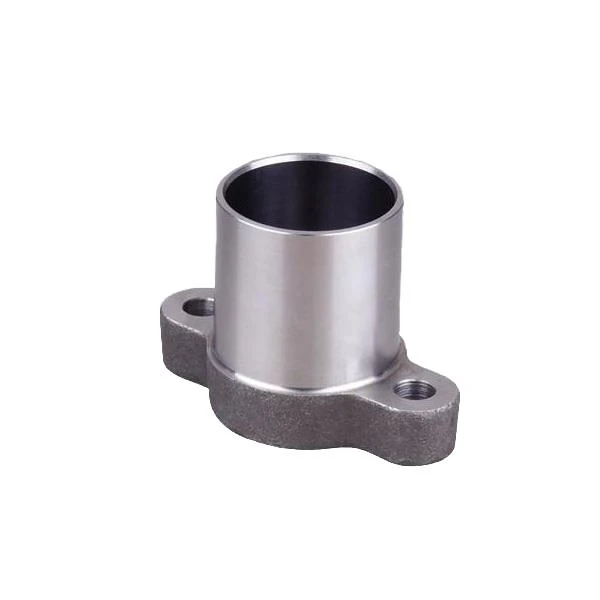custom machining
The Importance of Custom Machining in Modern Manufacturing
In today's fast-paced manufacturing landscape, custom machining plays a crucial role in delivering high-quality products tailored to specific needs. Unlike mass production, custom machining focuses on producing unique components and parts based on individual specifications, enhancing both functionality and performance across various industries. This article explores the importance, benefits, and applications of custom machining in modern manufacturing.
Understanding Custom Machining
Custom machining involves the creation of precision parts using various machining processes, such as milling, turning, grinding, and electrical discharge machining (EDM). These processes allow for the manipulation of materials such as metals, plastics, and composites to achieve desired shapes and sizes. The ability to create bespoke components makes custom machining an ideal solution for industries ranging from aerospace and automotive to medical devices and electronics.
The Benefits of Custom Machining
1. Tailored Solutions One of the primary advantages of custom machining is the ability to produce parts that meet specific requirements. Manufacturers can design components that fit precisely within the parameters needed for a particular application, ensuring optimal performance.
2. Quality Assurance Custom machining often leads to higher-quality products. With the ability to oversee every step of the machining process, manufacturers can implement strict quality control measures. This focus on precision and detail results in components with superior finishes, tolerances, and overall reliability.
3. Material Versatility Custom machining allows for the use of a wide range of materials, including high-strength alloys, advanced plastics, and composite materials. This versatility means that manufacturers can choose the best material for their application, ensuring not only functionality but also durability and cost-effectiveness.
4. Reduced Lead Times With advancements in CNC (Computer Numerical Control) technology, custom machining can be executed with remarkable speed and efficiency. This capability significantly reduces lead times, enabling manufacturers to respond swiftly to market demands and changing customer needs.
5. Innovation and Prototyping Custom machining is essential for innovation, allowing companies to create prototypes quickly. This rapid prototyping capability enables designers and engineers to test ideas, make adjustments, and develop products that meet market demands before full-scale production begins.
custom machining

Applications of Custom Machining
Custom machining is employed across various sectors, each benefiting from its unique advantages.
- Aerospace The aerospace industry relies heavily on custom machining to produce intricate parts that adhere to stringent safety and performance standards. Components such as turbine blades, brackets, and landing gear are often machined to precise specifications to ensure functionality in critical applications.
- Automotive In the automotive sector, custom machining allows for the production of specialized parts, such as engine components, transmission housings, and custom fittings. As vehicles become more sophisticated with advanced technologies, the need for tailored components grows.
- Medical Devices The medical industry benefits greatly from custom machining, as it allows for the production of specialized surgical instruments, implants, and diagnostic equipment. The precision required in these components is paramount to ensure patient safety and efficacy.
- Electronics Custom machining is vital in the electronics industry, where components such as circuit boards, housings for sensitive devices, and connectors require exact specifications to function correctly within devices.
The Future of Custom Machining
As manufacturing continues to evolve with advancements in technology, custom machining is poised to remain a pivotal component in the industry. Innovations such as additive manufacturing, automation, and artificial intelligence will further enhance the capabilities of custom machining, allowing for even greater precision and efficiency.
In summary, custom machining is an indispensable part of modern manufacturing, offering tailored solutions that enhance the quality, functionality, and efficiency of products across various industries. By understanding its importance, manufacturers can better leverage custom machining to meet the unique demands of an ever-changing marketplace. As technology advances, the possibilities for custom machining will only expand, driving innovation and growth in countless sectors.
-
OEM Sand Cast Pump Valve Fittings - Baoding Hairun | Precision Engineering, CustomizableNewsJul.30,2025
-
OEM Sand Cast Pump Valve Fittings - Baoding Hairun Machinery And Equipment Trading Co., Ltd.NewsJul.30,2025
-
OEM Sand Cast Pump Valve Fittings - Baoding Hairun Machinery And Equipment Trading Co., Ltd.NewsJul.30,2025
-
OEM Sand Cast Pump Valve Fittings - Baoding Hairun Machinery|Precision Engineering&Fluid ControlNewsJul.30,2025
-
OEM Sand Cast Pump Valve Fittings - Baoding Hairun Machinery And Equipment Trading Co., Ltd.NewsJul.30,2025
-
OEM Sand Cast Pump Valve Fittings-Baoding Hairun Machinery And Equipment Trading Co., Ltd.NewsJul.30,2025















